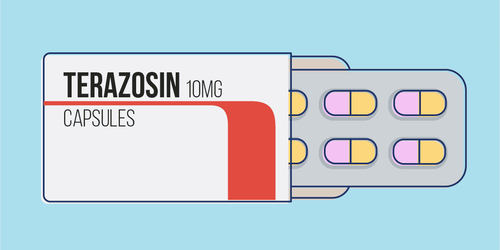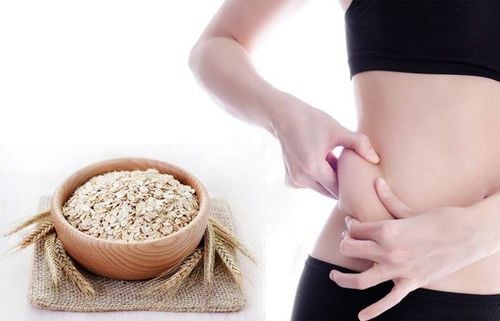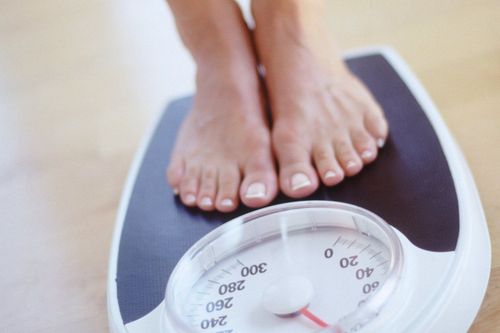This is an automatically translated article.
After menopause, the body's cells store more fat and fat metabolism slows down. Menopause does not cause weight gain, but weight can increase with age, and the increased distribution of belly fat is related to the hormonal changes in perimenopause. Excess weight gain in middle age is associated with an increased risk of cardiovascular disease and diabetes.
1. What is menopause?
Menopause is the time that marks the end of the menstrual cycle. It is diagnosed after 12 months without a period. Menopause can happen between the ages of 40 and 50, but the average age in the United States is 51.
Menopause is a natural biological process and it is the result of:
A decline in natural reproductive hormones However: As a woman reaches the age of 30, the ovaries begin to produce less estrogen and progesterone, the hormones that regulate menstruation, and fertility declines. At the age of 40, menstrual cycles are longer or shorter, heavier or lighter may even be more or less frequent. Until eventually the ovaries stop producing eggs and no longer menstruate (around age 51). Hysterectomy: Even though menstruation stops, the ovaries still release eggs and produce estrogen and progesterone. However, surgically removing both the uterus and all of the ovaries will cause immediate menopause. Chemotherapy and radiation therapy: Cancer treatments can cause menopause. Primary ovarian failure. Menopause can result from primary ovarian failure. When this happens, the ovaries do not produce hormones at normal levels. This can stem from genetic factors or an autoimmune disease.
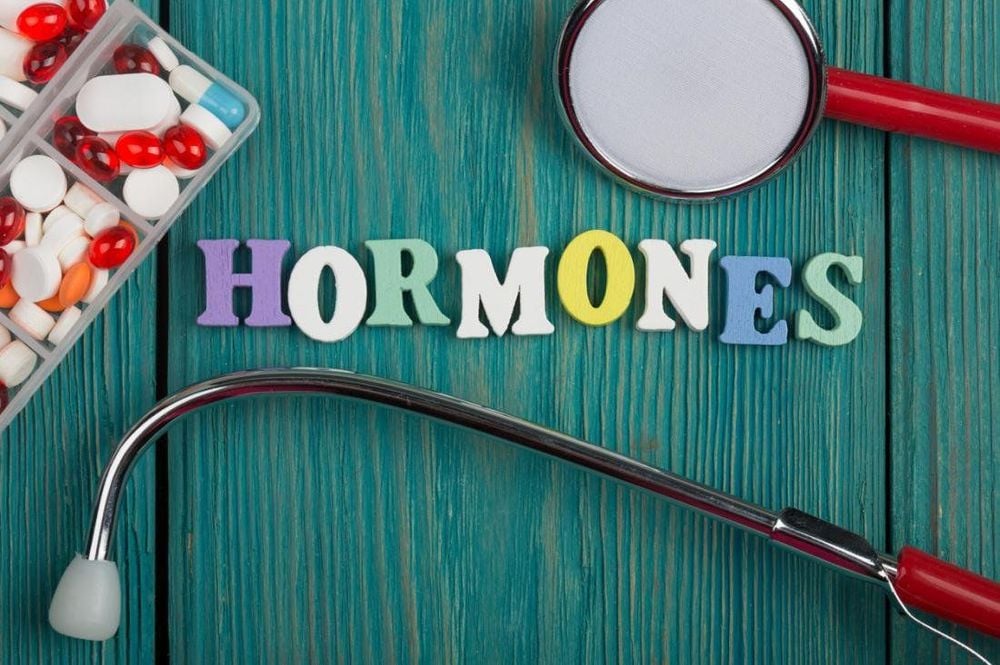
Suy giảm hormone sinh sản tự nhiên là một trong những nguyên nhân dẫn đến mãn kinh
2. The link between menopause and weight gain
Women tend to have more fat in middle age than men. Even if you don't gain any extra pounds, you may find that your clothes don't fit because your waistline is too tight.
Before understanding the relationship between obesity and menopause, it is necessary to understand what visceral fat is.
The fat mentioned in this period is visceral fat. Because, the problem of weight is not as simple as gaining weight. The bigger issue here may be where the fat is distributed across the body. During adulthood, women tend to store more fat in certain areas such as the hips and thighs, but after menopause, in addition to these areas, there are other areas such as the abdomen. this type of fat.
Visceral fat is fat located under the skin. It is found deeper in the abdomen, filling the space between vital organs and the fatty membrane that surrounds the abdomen.
Unlike other fats in the body, visceral fat produces hormones and other substances such as cytokines that can:
cause blood vessels to narrow and raise blood pressure Increase insulin resistance, and also increase insulin resistance. reduce the body's ability to use insulin effectively Inflammation is triggered and at the same time it is associated with a whole host of other problems in the body including heart disease Contributing to sexual dysfunction Increases risk of certain cancers.
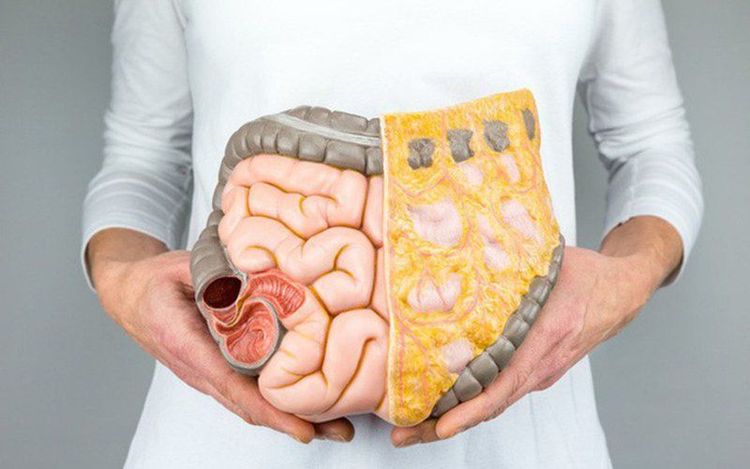
Chất béo nội tạng nằm dưới da và là nguyên nhân gây ra nhiều bệnh cho cơ thể
Doctors think that along with a number of problems that can explain why menopause weight gain:
Fat burning slows down with age and metabolism slows down over time. In addition, women aged 40 and above have less exercise activity due to busy lives. When exercise is not maintained, the body will have less muscle mass and gradually increase fat. Decreased hormone levels and other factors such as genes cause the body to store more fat in new locations after menopause. On a case-by-case basis, before menopause, fat can accumulate in the hips. However, when entering this stage, there may be more fat stored in the waist. Therefore, it is possible that this change caused the shape to change from a pear shape (more fat stored in the hips and thighs) to an apple shape (more fat stored in the waist and abdomen).
3. Why is it important to avoid storing belly fat?
Whatever the cause, more menopausal women in the United States are overweight than their normal weight. The weight gain in this case is often accompanied by many health concerns. Because, belly fat is linked to heart problems, stroke, type 2 diabetes, high blood pressure, arthritis, breast cancer and colon cancer.

Phụ nữ thời kì mãn kinh có xu hướng tăng cân so với cân nặng bình thường
Even if body mass index (BMI) is normal, large waist circumference (90 cm for women) along with other factors is associated with diabetes risk in women.
Some ways to maintain avoiding belly fat storage:
Eat a little less. Weight gain now may have to be average. For the goal of total weight loss, eating less than 200 calories per day by the age of 50 will probably have a good effect. Healthy diet. Choosing the right food will make a big change to the body. In recent research, women lose weight during menopause by eating a diet that's higher in nutrients and lower in calories. At the same time, give up sugary drinks, fried foods, meats, cheese and desserts for fish, fruits and vegetables. Maintain muscle. Regular exercise boosts metabolism and burns what's in the body, while helping the body lose fat faster in general. Keeping active adds muscle mass, which also helps prevent weight gain. Walking, jogging, and strength training also help you lose weight. Management of menopausal symptoms. Hot flashes and poor sleep can increase your stress levels. These are the reasons why the body can gain weight. Exercise can help manage these symptoms better. For examination and treatment at Vinmec, please go directly to Vinmec health system or register online HERE.
References: mayoclinic.org; webmd.com




